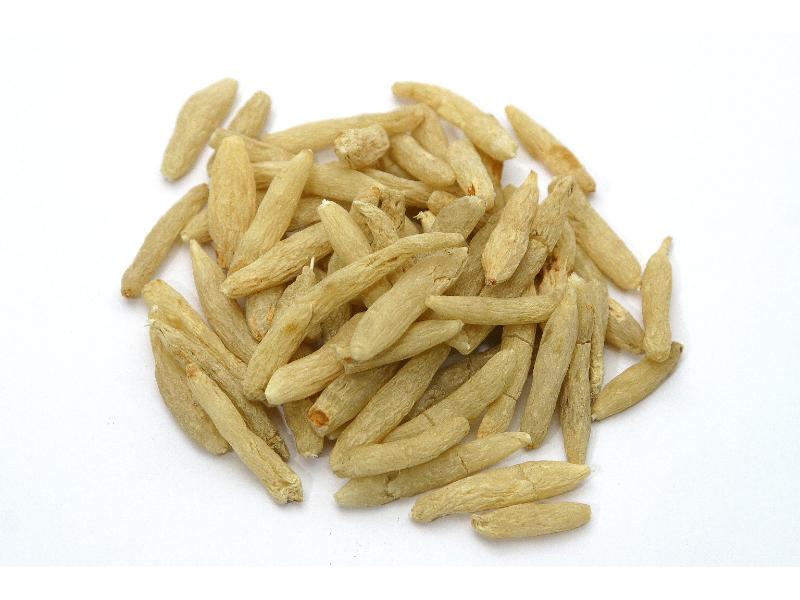Search in medicinals
Ophiopogonis Radix
Ophiopogon [root]
麦冬 〔麥冬〕 mài dōng

Alternate English names: lilyturf [root]
Alternate Chinese names: 麦门冬 mài mén dōng
Kingdom: Plant
Origin in PRC Pharmacopoeia: Ophiopogon japonicus (Thunb.) Ker-Gawl. (PRC Pharmacopoeia)
Origin in unofficial sources: Ophiopogon japonicus Ker-Gawl.*; Liriope kansuensis (Batal.) C.H. Wright.; Liriope minor (Maxim.) Mak.; Liriope platyphylla Want et Tang; Liriope spicata Lour.; Ophiopogon intermedius D. Don
Use: Medicinal
Category: Supplementing agents / Yīn-supplementing agents
Properties: Sweet, slightly bitter; slightly cold.
Channel entry: Stomach, lung, and heart channels.
Actions and indications:
- Nourishes lung yīn and clears lung heat: Yīn vacuity and lung dryness with heat, manifesting as cough, scant phlegm, coughing of blood, sore throat, and loss of voice.
- Boosts the stomach and engenders liquid: Stomach yīn vacuity with heat, manifesting in
dry tongue , thirst, stomach duct pain,hunger without desire to eat ,vomiting and retching , and dry stool. - Clears the heart and eliminates vexation: Heart yīn vacuity; evil heat entering provisioning in warm disease.
Dosage and method: Oral: 6–12g in decoctions. Traditionally, the core (心 xīn, literally heart
) is removed for clearing lung or stomach heat but is not removed when treating heart patterns.
Warnings: Contraindicated in spleen-stomach vacuity cold with reduced eating and sloppy stool, in wind-cold common cold, and in phlegm-rheum and damp turbidity.
Quality: The best quality tubers are fat, light in color, and semi-translucent. They are soft and supple, have a sticky texture in the mouth, and give off a pleasant scent.
Production area: Zhèjiāng, Sìchuān, and less importantly Jiāngsū, Guìzhōu, Yúnnán, Guǎngxī, ānhuī, Húběi, Húnán.
Back to search result Previous Next